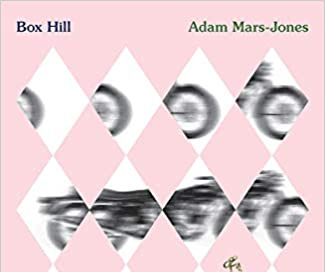NB: this piece was originally commissioned in 2020 by a long-running publication in the UK. Ultimately the piece was killed. The editorial staff felt I had not given Mr. Mars-Jones’s book ‘a fair shake’. Here it is—an unfair shake? a shake?—with a few alterations.
The author of three previous novels, Adam Mars-Jones is also well known as a critic, whose regular pieces in the LRB and the TLS are occasionally as lacerating as they are incisive. Unfortunately, his latest1 novel, Box Hill, a slim affair clocking in at 120 pages, incises little and lacerates only in its relentless employment of euphemism and cliché.
The novel begins on Colin’s eighteenth birthday, 1975. That day, on a walk through the woods that cover the book’s titular hill, Colin trips over a leather-clad man named Ray. In short order Colin finds himself giving Ray a blowjob. Ray snaps his fingers to signal he wants Colin to do this. We quickly find Ray not to be much of a verbal communicator. Though he serves as our narrator, neither is Colin. Later that same afternoon it is decided, more or less without either of them verbalizing the fact, that Colin will become Ray’s ‘houseboy’ forevermore. Whether Colin has taken on the status of Ray’s new boyfriend or not remains unclear. It takes quite a few pages before the ambiguity resolves itself. (The answer: sort of.) Ray is head of a club of gay bikers, and while the reader might at first reasonably suspect that Colin is also granted the status of a full member, we are well into these descriptions before it becomes clear that Colin is neither allowed to speak at the club’s poker nights, nor choose the music—all the full members take a turn—nor, on most occasions, to wear clothes. What he is allowed to do, however, is give club members oral pleasure whenever they want it. When we learn, roughly halfway through the novel, that even though our hero spends every night at Ray’s house, Ray never allows him to sleep in the bed, nor even on the sofa, Colin’s only comment is that he is ‘perfectly comfortable’ on the floor, and that he gets ‘good rest there.’ One gets the sense that perhaps the reason we’re so seldom allowed into our narrator’s head is perhaps because even the narrator has excluded himself from it, not to mention the author.
Of the book’s two separate scenes of intercourse, both are (somewhat ambiguously) acts of rape. The ambiguity lies in Colin’s unremittingly euphemistic style of description. Of the first, Colin allows that ‘some things can’t be consented to’. The second forcible sex act is committed by the side of a busy thoroughfare and seemingly played by Mars-Jones for laughs, though Colin admits he ‘didn’t want to get into the rhythm, though the rhythm was there’. Though Ray seemingly has the key to Colin’s body whenever he wants it, Colin is never given a key to Ray’s house. Muddling matters further, after Ray’s death we learn that even though their relationship has lasted six years, Colin has failed to learn Ray’s last name, nor if he even had a job. To call any of this a relationship in the proper sense may baffle those who prefer, in a years-long relationship, no matter how non-mainstream in nature, at the very least to be apprised of the name and occupation of one’s companion. Colin doesn’t seem overly troubled by any of it: ‘I needed him to have his privacy, because I needed him to have secrets’. One doesn’t mind the moral ambiguity of all this so much as one minds not knowing how or why Colin manages not to mind it, even years after their ‘relationship’ has ended, but Mars-Jones seems content to let the vague remain vague, and the ambiguous ambiguous.
Colin’s reasons for finding Ray so attractive also fail to come into focus, though he does provide a number of clichéd superlatives, such as that ‘Ray had image and to spare’ and that Ray was ‘ahead of his time’ and ‘just a natural leader’. We’re informed that ‘Even his waiting wasn’t like ordinary people’s waiting’, though not precisely how Ray manages such a feat. Aside from indulging in the occasional act of rape, Ray seems like quite the guy. At the very least, thank God, we’re given a clear picture of Colin’s feelings with regard to his parents. The phrases ‘my little Mum’ and ‘my little Dad’ appear three and seven times, respectively—apparently the pair are quite diminutive in stature. We’re even treated to the observation that Colin’s parents ‘were a textbook perfect couple’. Examples of similar linguistic innovation abound. While riding on the back of one of the club member’s motorcycles (I cannot now recall whether the character is named Big Steve or Little Steve) to the place where Ray died, Colin makes the bracingly original observation that he himself ‘held on like grim death’.
Mars-Jones is nothing if not considerate in making sure his audience remains aware of the novel’s era. These ‘were different times’, he tells us. In case anyone has forgotten, we’re reminded ‘People didn’t take drink-driving very seriously then’, and ‘We all of us had less reason to expect our possessions to be pinched in those days’. The phrase ‘in those days’ is itself deployed three times in a span of four pages. We’re even reminded that ‘People could still do mental arithmetic then’. On the subject of arithmetic, readers are treated to no fewer than five separate meditations on the subject of Ray’s admirable safety-consciousness when it comes to biking—one assumes in order that Ray’s (tragic!) death will achieve its full dramatic potential. The scene comes off as flat as everything else contained in this mercifully short little book.
A novella, Batlava Lake, has appeared since the initial version of this piece was written.



